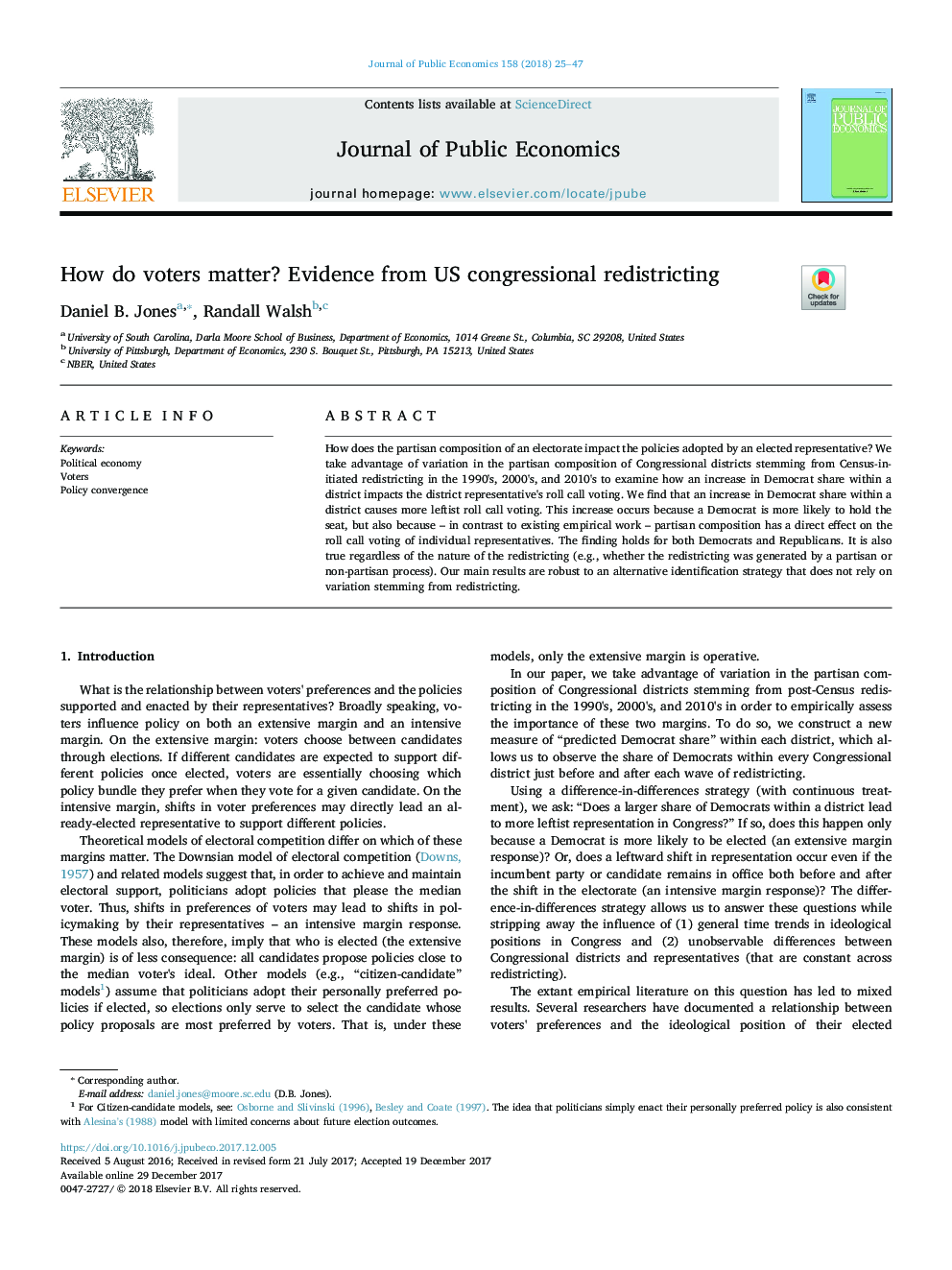| Article ID | Journal | Published Year | Pages | File Type |
|---|---|---|---|---|
| 7369565 | Journal of Public Economics | 2018 | 23 Pages |
Abstract
How does the partisan composition of an electorate impact the policies adopted by an elected representative? We take advantage of variation in the partisan composition of Congressional districts stemming from Census-initiated redistricting in the 1990's, 2000's, and 2010's to examine how an increase in Democrat share within a district impacts the district representative's roll call voting. We find that an increase in Democrat share within a district causes more leftist roll call voting. This increase occurs because a Democrat is more likely to hold the seat, but also because - in contrast to existing empirical work - partisan composition has a direct effect on the roll call voting of individual representatives. The finding holds for both Democrats and Republicans. It is also true regardless of the nature of the redistricting (e.g., whether the redistricting was generated by a partisan or non-partisan process). Our main results are robust to an alternative identification strategy that does not rely on variation stemming from redistricting.
Related Topics
Social Sciences and Humanities
Economics, Econometrics and Finance
Economics and Econometrics
Authors
Daniel B. Jones, Randall Walsh,
